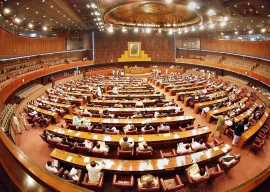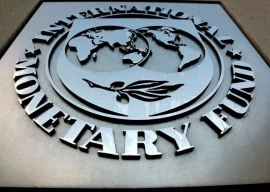
Pakistan and Iran have entered into a deadlock over the price for export of 1,000 megawatts of electricity as the former has refused to accept the latter’s price link with international crude prices.
Pakistan and Iran have already signed a memorandum of understanding (MoU) for electricity supply. However, Iran has linked the price for export of 1,000 megawatts of electricity with international crude prices with the rate fluctuating in the range of 7 to 11 cents per unit.
“Iran will produce power with gas and therefore its price should be linked with gas, which is a cheaper source of power generation,” a source said, adding that the government of Pakistan is also discouraging power generation through furnace oil and moving towards coal for power generation.
Furthermore, the price of importing electricity will rise after including expenditures on laying the distribution and transmission line. An official of the Ministry of Water and Power said gas prices in Iran were linked with global oil prices, therefore, it based the power price on crude oil prices in the international market.
“The power price offered by Iran is not acceptable to us as we do not want to link the price with crude oil for the power,” a senior government official said.
According to the price formula, Pakistan will be paying a maximum rate of 11 cents per unit of electricity if crude prices reach $110 per barrel and the price range will be reviewed after five years. The electricity price has been capped so that oil rates do not cross the $145 per barrel mark. However, if crude prices rise above that level, the two countries will be bound to review the electricity rate before the end of five-year period.
Under the proposed project, Iran will build a powerhouse in Zahedan province bordering Pakistan to generate electricity for export and has also expressed its willingness to provide $800 to $900 million for the project. A 700km transmission line of 500 kilovolts will also be laid from the Pak-Iran border to Quetta.
Some officials suggest that the government should ask Iran to install the power plant in Pakistan in order to avoid expenditure on laying the distribution and transmission line.
Besides the 1,000MW for which an MoU has been signed, Iran has also offered to export a huge quantity of 10,000MW to Pakistan.
However, the ministry official pointed out that Iran, at present, had no power plants to export such a huge quantity. “So the best way is to press Tehran to establish power plants in Pakistan,” the official said, adding Iran had already shown interest in setting up a 200MW plant in Balochistan near the border.
Published in The Express Tribune, October 31st, 2012.
COMMENTS (5)
Comments are moderated and generally will be posted if they are on-topic and not abusive.
For more information, please see our Comments FAQ





































1713853507-0/MalalaHilary-(2)1713853507-0-270x192.webp)







The Shah was our friend. These mullahs, not so much.
Why dont we built power plants ourselves? I though the problem was fuel and not the technical know how to built the plants
So Iran is going to provide power from a plant which hasn't been built - through transmission lines which currently don't exists - and you still don't have a completed contract.
Options such as creating a joint venture power company should be explored, which has dedicated gas supplies from Iran and dedicated power sales agreement in Pakistan. Instead of having the power plant constructed in Iran, it should be constructed on Pakistani side of the border, as its customers are in Pakistan. This project should not only be seen as a power generating source, but its placement on Pakistani side would helf is developing infrastructure in the area, generate local employment and assist in upliftment of local communities.
If this is so then China is much the best option Pakistan has to produce low-priced electricity by the available indigenous resources within Pakistan than Iran and I am surprised that how Iran is fulfilling the demands of comradeship........